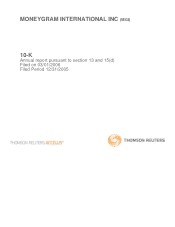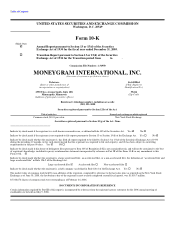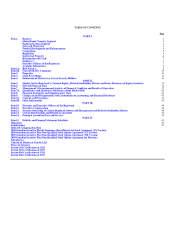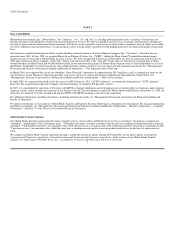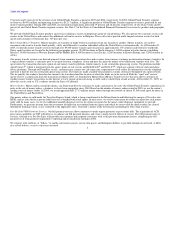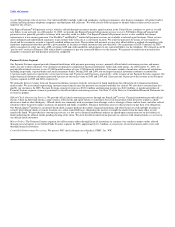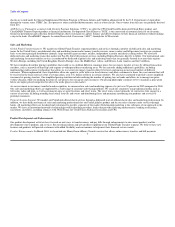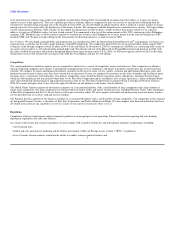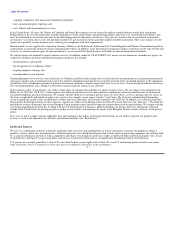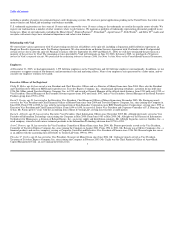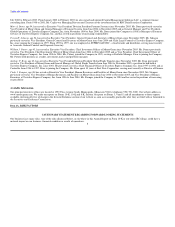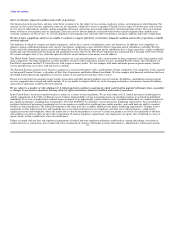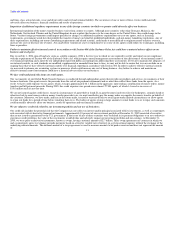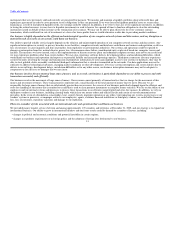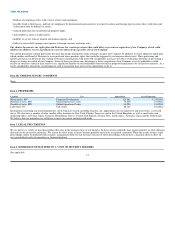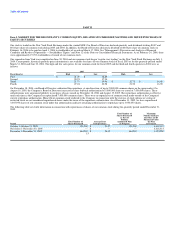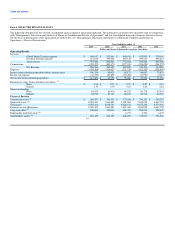MoneyGram 2005 Annual Report Download - page 9
Download and view the complete annual report
Please find page 9 of the 2005 MoneyGram annual report below. You can navigate through the pages in the report by either clicking on the pages listed below, or by using the keyword search tool below to find specific information within the annual report.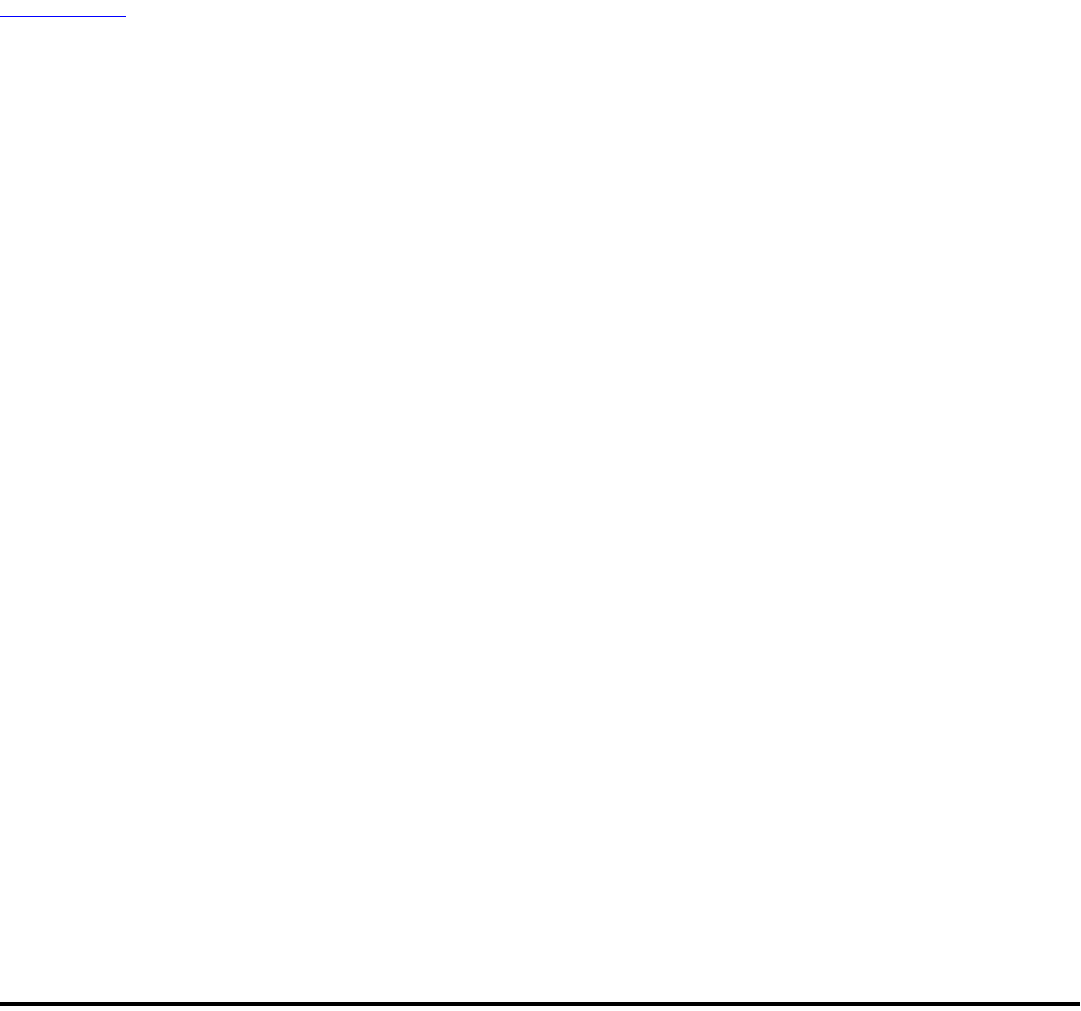
Table of Contents
requiring compliance with anti-money laundering regulations;
• state unclaimed property reporting; and
• state, federal and international privacy laws.
In the United States, 45 states, the District of Columbia and Puerto Rico require us to be licensed in order to conduct business within their jurisdiction.
Requirements to be so licensed generally include minimum net worth, surety bonds, operational procedures and reserves or "permissible investments" that
must be maintained in an amount equivalent to all outstanding payment obligations issued by us. The types of securities that are considered "permissible
investments" vary from state to state, but generally include U.S. government securities and other highly rated debt instruments. Most states require us to file
reports on a quarterly or more frequent basis, verifying our compliance with their requirements.
Internationally, we are registered as required in Germany, Malaysia, the Netherlands, Switzerland, the United Kingdom and Ukraine. International regulatory
requirements are generally focused on money laundering prevention. In addition, many international jurisdictions impose restrictions on the type of entity that
can serve as a money transfer agent. In some jurisdictions, we are restricted to doing business with banks or other licensed financial entities.
We and our agents are required to report suspicious activity. In addition, under the USA PATRIOT Act, money service businesses, including our agents, are
required to establish anti-money laundering compliance programs that include:
• internal policies and controls;
• the designation of a compliance officer;
• ongoing employee training; and
• an independent review function.
Unclaimed property laws of every state, the District of Columbia and Puerto Rico require that we track the relevant information on each payment instrument
and money transfer and, if unclaimed at the end of the statutory abandonment period, that we remit the proceeds of the unclaimed property to the appropriate
jurisdiction. State abandonment periods for payment instruments and money transfers range from three to seven years. Certain foreign jurisdictions also may
have unclaimed property laws, though we do not have material amounts subject to any such law.
In the ordinary course of our business, we collect certain types of consumer data and thus are subject to privacy laws. We are subject to the Gramm-Leach-
Bliley Act of 1999 (the "GLB Act"), which requires that financial institutions have in place policies regarding the collection and disclosure of information
considered nonpublic personal information. We comply with the GLB Act by posting a privacy notice on our website, as well as posting a privacy notice on
the forms completed by individuals in order to use services (for example, on our money transfer "send" form). We also have confidentiality/information
security agreements in place with our third-party vendors and service providers to the extent required by the GLB Act. In addition, we collect personal data
flowing from the European Union to other countries, and thus are subject to the European Personal Data Protection Directive (the "Directive"). The Directive
prohibits the transfer of personal data to non-European Union member nations that do not provide adequate protection for personal data. We comply with the
safe harbor permitted by the Directive by filing with the U.S. Department of Commerce, publicly declaring our privacy policy for information collected
outside of the United States by posting our privacy policy on our website, and requiring our agents in the European Union to notify customers of the privacy
policy.
If we were to fail to comply with any applicable laws and regulations, this failure could result in restrictions on our ability to provide our products and
services, as well as the imposition of civil fines and criminal penalties. See "Risk Factors."
Intellectual Property
We rely on a combination of patent, trademark, copyright, trade secret law and confidentiality or license agreements to protect our proprietary rights in
products, services, know-how and information. Intellectual property laws afford limited protection. Certain rights in processing equipment and software held
by us and our subsidiaries provide us with a competitive advantage, even though not all of these rights are protected under intellectual property laws. It may
be possible for a third party to copy our products and services or otherwise obtain and use our proprietary information without our permission.
U.S. patents are currently granted for a term of 20 years from the date a patent application is filed. We own U.S. and foreign patents related to our money
order technology. Our U.S. patents have in the past given us competitive advantages in the marketplace,
6

